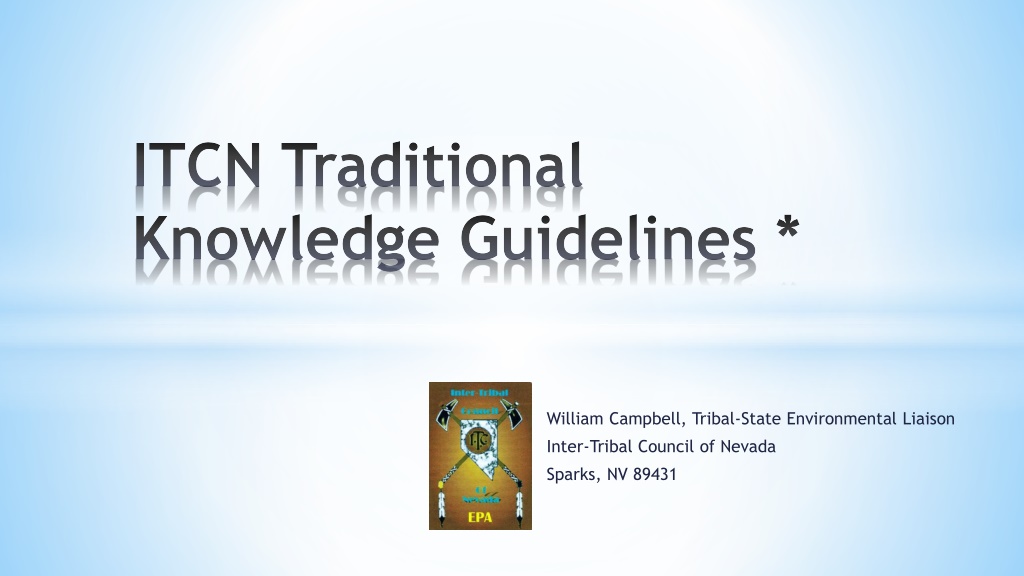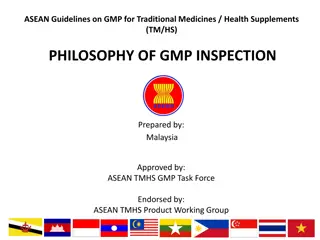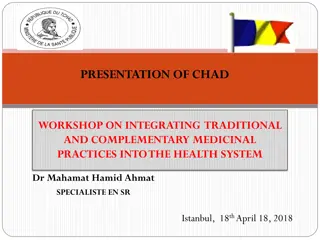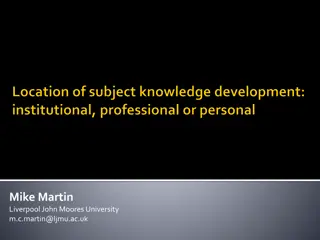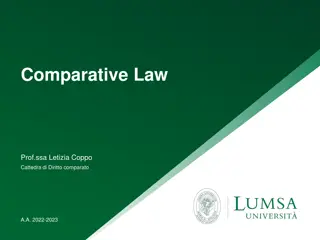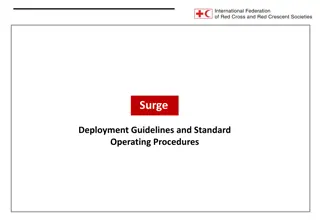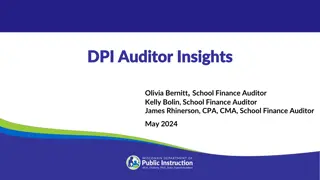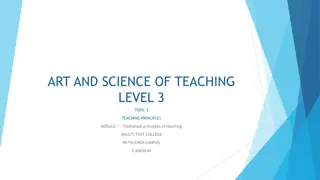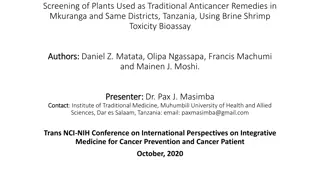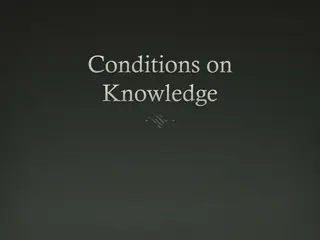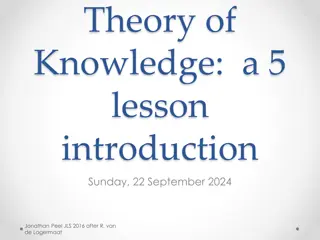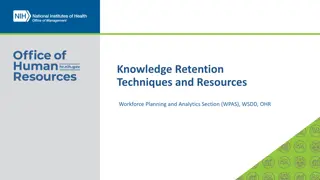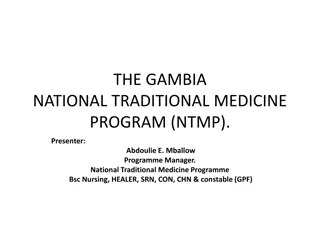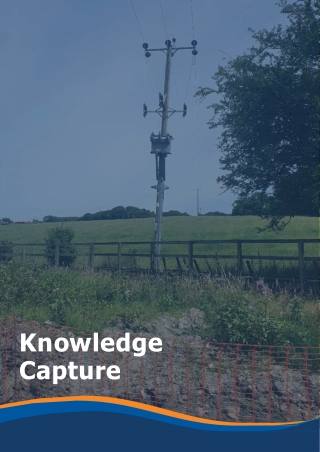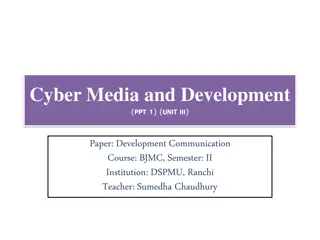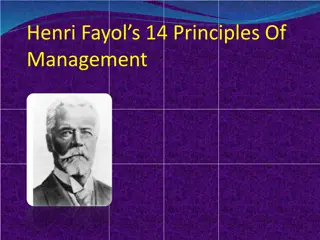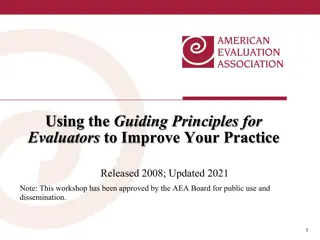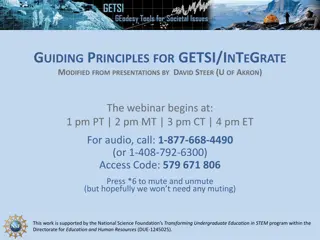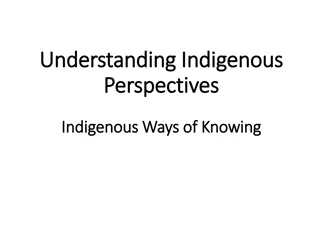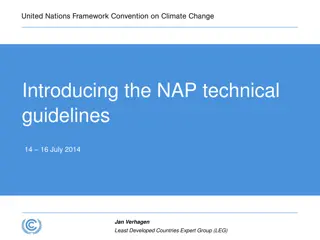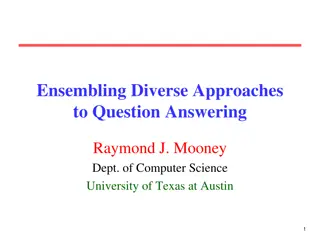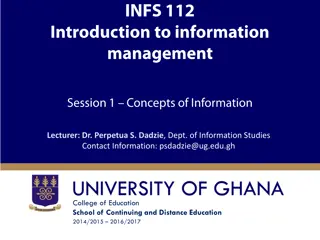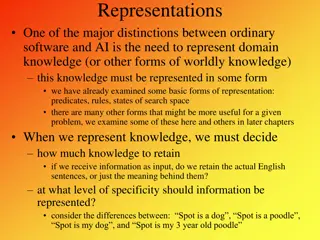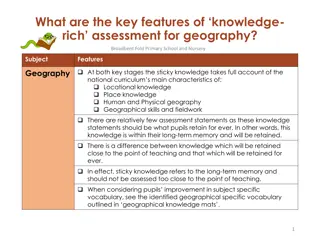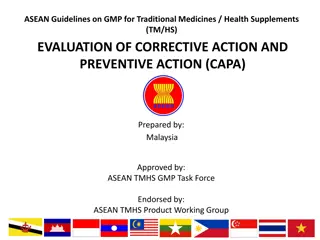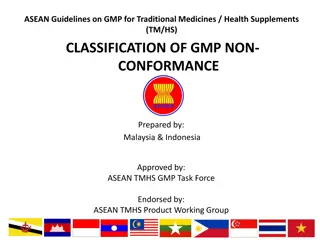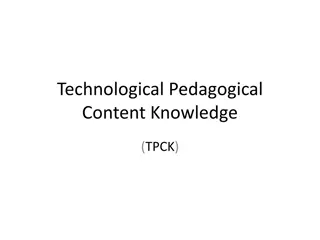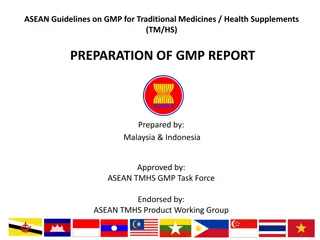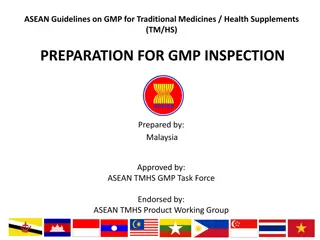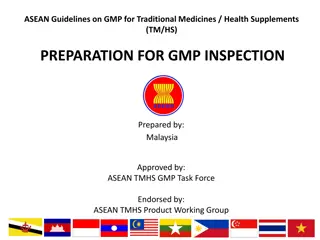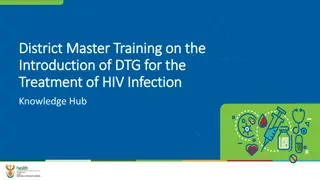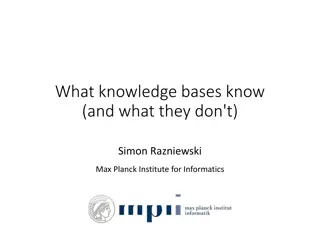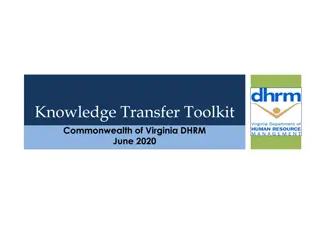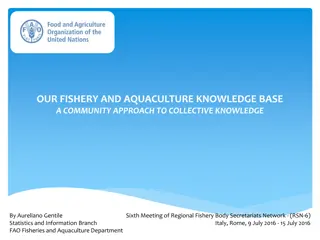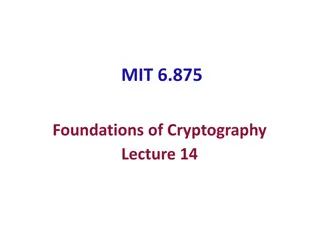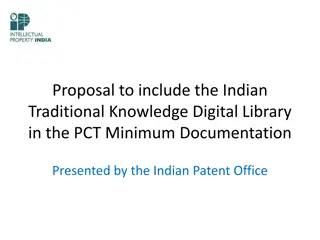Understanding Traditional Knowledge Guidelines and Principles
Traditional Knowledge (TK) Guidelines and Principles cover important aspects like Free, Prior, and Informed Consent (FPIC), the impact of climate change on Tribal Communities, and the fundamental principles of Tribal Sovereignty over TK. These guidelines emphasize the importance of consent, tribal sovereignty, and the transmission of information related to TK to ensure cultural preservation and protection in the face of modern challenges like climate change.
Download Presentation

Please find below an Image/Link to download the presentation.
The content on the website is provided AS IS for your information and personal use only. It may not be sold, licensed, or shared on other websites without obtaining consent from the author. Download presentation by click this link. If you encounter any issues during the download, it is possible that the publisher has removed the file from their server.
E N D
Presentation Transcript
ITCN Traditional Knowledge Guidelines * William Campbell, Tribal-State Environmental Liaison Inter-Tribal Council of Nevada Sparks, NV 89431
* We Wish to acknowledge * Mr. Preston Hardison, Tulalip Natural Resources These initial TK guidelines were presented at the North Pacific Landscape Conservation Cooperative TEK Meeting, September 4, 2014, Portland, OR
Some of the Components of Traditional Knowledge (TK)
Traditional Knowledge Introduction Free prior and informed consent (FPIC), is the principle that a community has the right to give or withhold its consent to proposed projects that may affect the lands they customarily own, occupy or otherwise use. FPIC is now a key principle in international law and jurisprudence related to indigenous peoples. Free: un-coerced, unbiased, freedom of Tribe to set procedure through which consent is given Prior: Consent prior to access and use, changes in use Consent: Right to say no; the ability to give or withhold consent Not necessarily collective consent collective rules
Traditional Knowledge Introduction Climate Change is the result of a profound failure to control human desire and its impact on the Earth s climate system TKs are now a priority focus in some Tribal Communities, and funding is increasing Guidance that may exist are not know or not followed; what may exist doesn t fully reflect Tribal views Regardless of historical context, with regard to climate change, Tribes must move on (in what amounts to forced participation) Must transfer some kind of information related to TKs to ensure they are not harmed by solutions (adaptation, mitigation, conservation)
Traditional Knowledge Introduction: Primary Principles Tribal Sovereignty All tribes have sovereign jurisdiction over their traditional knowledge All tribes have the right to set their own criteria for sharing or not sharing TKs Guidelines that will be presented are not a checklist
Traditional Knowledge Introduction: Primary Principles Tribal Internal Policies Values: Respect, reciprocity, equilibrium, good mind, good heart Procedures: How to contact the Tribe, how they wish to structure participation; free, prior and informed consent Benefit sharing: economic, capacity-building, technology transfer, acknowledgement
Traditional Knowledge Introduction External Policies Standing: Power relationships, sovereignty and self-determination, government-to-government relations Nature of Traditional Knowledge: Cultural heritage vs. intellectual property ownership of exchanged knowledge Control over exchanged knowledge Ownership of products Control over the publication and distribution of products Legal issues: No recognition of customary law (public domain), no recognition of G-2-G sovereign communications (FOIA) Loss of benefit sharing Co-protection: TKs and associated cultural resources
Traditional Knowledge Guidelines: Guideline 1. Understand key concepts and definitions related to TKs Guideline 2. Recognize that indigenous peoples and holders of TKs have a right NOT to participate in federal interactions regarding TKs Guideline 3. Understand and communicate risks for Tribal peoples and holders of TKs
Traditional Knowledge Guidelines Guideline 4. Establish an institutional interface between Tribal members, TK holders, and government for clear, transparent and culturally appropriate terms-of-reference, particularly through the development of formal research agreements Guideline 5. Provide training for federal agency staff working with Tribal members on initiatives involving TKs Guideline 6. Provide specific directions to all agency staff, researchers and non-indigenous entities to ensure that protections for TKs requested by Tribes and knowledge holders are upheld
Traditional Knowledge Guidelines Guideline 7. Recognize the role of multiple knowledge systems Guideline 8. Develop guidelines for review of grant proposals that recognize the value of TKs, while ensuring protections for TKs, Tribal members, and holders of TKs
Traditional Knowledge Guidelines Risks Misappropriation of traditional knowledge Moral hazard of cultural offense (customary law/stewardship obligations) Third party acquisition of TKs (not bound by ethical guidelines or law) Loss of ownership/control over TKs Western Intellectual Property Law and the public domain/FOIA Privatization of TKs through derived intellectual property rights Loss of benefits/lack of benefit sharing for TKs Misappropriation of cultural resources associated with TKs Overharvesting/extirpation (local extinction)
Traditional Knowledge Guidelines: Opportunities Knowledge co-production and co-creation Novel solutions from combination of scientific knowledge and TKs Ensure indigenous resource, landscape and other values are reflected New knowledge in a changing world Limitations of the ability of TKs to cope with unprecedented change Increasing unreliability of traditional environmental indicators Valorization of traditional knowledge Potential for right relationships Co-management, self-management, government-to-government
Traditional Knowledge Guidelines 1. How a tribe wishes to be contacted 2. Who owns research outcomes 3. Tribal control over what gets published 4. Recognition and remuneration (payment) to elders 5. Acknowledgement 6. Restrictions on uses customary law collective ownership 7. Restrictions on transfers 8. Checkpoints for changes in use 9. Ongoing responsibilities for consultation, negotiation, monitoring, reporting
Traditional Knowledge Guidelines 11. Reciprocity Clarity over benefits to tribes Monetary and non-monetary benefit sharing Distributive justice 12. Respect 13. Flexibility and responsiveness to community needs 13. Procedures/procedural justice Full and effective participation Traditional decision making Gender, youth, elder participation 14. Equilibrium based on Tribal worldview, balance among partners and the environment
Conclusion Indigenous peoples tend to be very generous, and have shared much and are often willing to work with their neighbors. But there needs to be caution regarding the risk of disclosing unprotected traditional knowledge associated with unprotected cultural resources Free prior and informed consent is challenging and will take bridge- and institution-building Principle of Respect Principle of co-protection for both TKs and associated resources Principle of stewardship obligations (protected sharing) Principles of doing no harm
